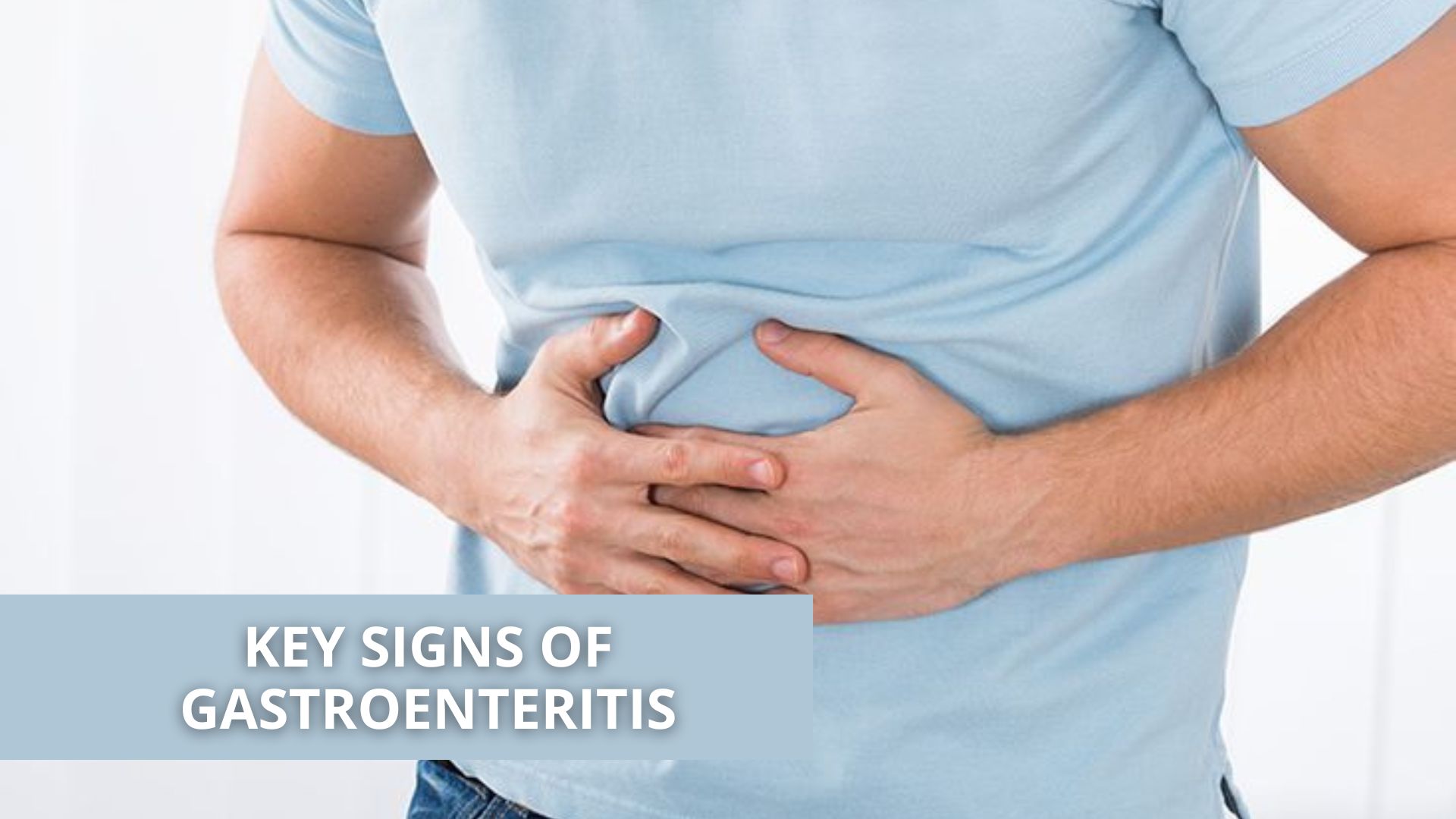Gastroenteritis, which is also known as ‘the stomach flu,’ is such a condition that affects many people around the world every single year. Gastroenteritis inflames the stomach and the intestines and is usually caused by a viral or bacterial infection. The disease can lead to discomfort in patients in many ways with the degree of discomfort changing according to the cause, the age and health of the person, and how good the treatment is. Awareness of the characteristic features of gastroenteritis is important for its diagnosis and subsequent treatment. In this article, we will now explain the most important symptoms and causes of gastroenteritis, as well as how it is possible to treat this condition.
1. What is Gastroenteritis?
1.1 Definition and Overview
Gastroenteritis is also referred to as stomach or intestinal flu as it concerns the smooth functioning of these organs. This inflammation affects the normal processing of nutrients and water absorption, thus explaining the features of this disease. This is generally due to viral infections, bacterial infections or parasite infections. Gastroenteritis is also described as acute sickness. ‘Gastro’-meaning stomach and ‘entero’ -the lower part of the intestines.
1.2 Causes of Gastroenteritis
It is well known that gastrointestinal infection is primarily caused by a viral infection such as rotavirus, norovirus, etc. Global cyberspace range even intensifies the rapid transmission of bacterial infection. A wide range of infections is caused by viral infectious agents: hepatitis viruses, cytomegalovirus, herpes viruses and others. When properly managed, these gastroenteritis-induced dehydration and electrolyte imbalances are swiftly corrected without leaving any lasting adverse consequences.
2. Key Signs of Gastroenteritis
Identifying the primary symptoms of gastroenteritis is useful especially in this particular disease as it allows one to prevent the disease by treating any person with this condition early. Below are the major manifestations of gastroenteritis:
2.1 Diarrhea
Diarrhea is regarded as the most common symptom associated with gastroenteritis. This is the uncontrollable discharge of loose and watery stools. It happens as a result of diarrhea as the patient is trying to flush out the infected material from the intestine thereby having more stooling, fluid, and electrolyte loss.
- Dehydration Risk: This can happen with severe diarrhea, especially among young children and older adults. Dehydration signs may include dry mouth, a decrease in urine production, dizziness, or lethargy.
- Duration: Extreme cases take a week or more forcing a visit to the hospital. Most diarrheas last from one to three days with mild forms lasting only up to four with only moderate cases lasting to six.
2.2 Nausea and Vomiting
Gastroenteritis has other symptoms especially vomiting and nausea as its symptoms and feature mostly in many viral infections. They result from inflammation of the stomach lining hence the vomiting which is a natural reaction of the body when the stomach is full.
- Frequency: Vomiting episodes are frequent and more often accompanied by reduced food intake. On some occasions, vomiting bouts are incessant causing depletion of body fluids fuelling the ongoing state of dehydration.
- Management: During nausea and vomiting, particularly soft and easily digestible fluids must be consumed to prevent dehydration. Clear fluids include water and various oral rehydration solutions or fluids to replace electrolytes.
2.3 Abdominal Pain and Cramps
Nausea, fever, sweating, and stomach cramps or abdominal pain are somewhat components of gastroenteritis. It is the irritation of the sore stomach and intestines that causes the cramps, as now the muscles have to move about the insides.
- Location: The pain is usually found in the lower part of the abdomen and can be mild, moderate, or intense according to the extent of the sickness. It may be variable, coming in epochs with sudden returns of waves or steadily as the level of the master infection subsides.
- Relief: Acetaminophen is one such medication that would help in reducing abdominal hostilities, including cage pain and cramps, which can later on become more stringent. He considers the use of non-steroidal anti-inflammatory drug-induced painkillers such as ibuprofen as inappropriate because these worsen the stomach.
2.4 Fever
It is also known that the patient with gastroenteritis would exhibit illumination of a low-grade fever and this is very much common in an individual infected by either a virus or bacterial infection. This because when there is an infection the body raises the body temperature by producing fever so as to chase the invading microbes away.
- Severity: Fever associated with gastroenteritis is usually low grade within the range of 100°F 102°F which is 37.8°C to 39°C. There are higher temperatures which are not normal where patients come in with parse gastroenteritis that suggests obstruction or more severe cases.
- Monitoring: Since the fever occurs, it is advisable to keep an eye on the patient’s fever and go for treatment whenever the fever extends to more than a few days or is associated with symptoms such as confusion or headache.
2.5 Fatigue and Weakness
Diarrheal, vomiting, and fever together can cause great weakness and tiredness. A lot of energy is used up when the body competes with the infection and dehydration contributes to tiredness because of the lack of nutrients.
- Rest: Rest is crucial in the healing process when recovering from gastroenteritis. Allowing time for physical recovery by decreasing the intensity of activity as well as getting enough rest may help enhance the healing rate.
- Nutrient Intake: Consuming tiny portions of food that are easy to digest is a good way to rejuvenate energy. Foods as simple as bananas, rice, or toast are easy on the tummy and nourish the body.
3. When to Seek Medical Attention
As it is with some types of gastroenteritis which would prefer rest and care in most cases, particular symptoms always demand more than just care:
3.1 Severe Dehydration
Severe dehydration is usually very dangerous and it may result to loss of life. Severe dehydration may manifest is a very dry mouth, very little polyuria, eyes that are deep set, very quick heartbeats, and faints. These care conditions call for immediate action.
3.2 Prolonged Symptoms
Once symptoms such as diarrhea and vomiting of gastroenteritis do last for more than a few days or get worse, it is time to find medical help. Prolonged symptoms are alarming as they might suggest a worse infection or that a different approach will be necessary.
3.3 High Fever and Severe Pain
A high fever, something in the region of 102 F or 39 C and above, or serious pain in the abdomen could mean more serious diseases such as appendicitis and infection that need the prescribing of antibiotics medications. In these instances, quick medical attention is crucial.
3.4 Blood in Stool or Vomit
When one has nausea or when one has vomited and sees what looks like blood, that becomes a scary issue and should be seen by a doctor. Such could cause a more serious infection, bleeding in the intestinal system, and many other serious illnesses.
4. Managing and Preventing Gastroenteritis
4.1 Hydration and Diet
Water maintenance is the utmost principle in the management of gastroenteritis. Taking in numerous amounts of fluids such as water, oral rehydration solutions, and clear broths facilitates the replacement of fluids and electrolytes lost. Apart from the provision of hydration:
- BRAT Diet: The BRAT diet, (bananas, rice, applesauce & toast) is often suggested for people suffering from gastroenteritis. What makes these foods easy to eat is that they are bland and so easy to cook. Newport Story Community Health Centre Protecting & Relating to The Parenting Blog.
- Managing diets in the acute stage of a disease by: Avoiding Certain Foods: It is important to avoid dairy products, fatty foods, and spicy foods, as they may worsen the symptoms. Alcohol and caffeine should also be avoided, as they can lead to further dehydration.
4.2 Medications
Cold medicines over the counter can address a few of the effects of gastroenteritis:
- Antiemetics: Medication such as dimenhydrinate helps with controlling nausea and vomiting.
- Antidiarrheal: The use of lope amide may assist in curbing the occurrence of diarrhea; however, it is only appropriate in certain situations with medical supervision, especially if there is a possibility of a bacterial infection.
- Analgesics: For example, acetaminophen in chronic fever and pain would also be warranted but for NSAIDs, caution should be maintained to avoid aggravating the stomach.
4.3 Preventing Gastroenteritis
Gastroenteritis can be prevented by a strict adherence to hygienic and food safety measures:
- Hand washing: For the effective eradication of infection transmission, effective hand washing with soap and water, especially after going to the toilet, before meals, and after raw food is handled has to be observed.
- Enforced Food Safety: Proper cooking, prevention of cross-contamination and washing food can lower cases of bacterial gastroenteritis in rural communities.
- Inoculation: Rotavirus vaccination is indicated in very young children since it reduces the chances of viral gastroenteritis.
4.4 Probiotics
Probiotics, taken after gastroenteritis, for instance, are good bacteria taken to promote the normal balance of gut flora which can be disrupted by illness. They should help shorten the length of diarrhea and improve recovery of the digestive system.
5. Conclusion
Gastroenteritis is a widely recognized ailment and has frequent sequelae. Illicit great proportion of key symptoms including diarrhoea, vomiting, abdominal pains, and fatigue is essential in evaluating the condition early and responding proficiently. In most instances, gastroenteritis cases can be self-treated using hydration and resting, but, in case the patient does not feel well, he needs to be seen by a doctor. Knowing the nature of gastroenteritis, its indicators, and what to do when it occurs helps one in modifying the situation and avoiding it in the future. Good hygiene measures, and sound food hand practices. Healthy eating habits always help reduce the chances of developing gastroenteritis and help with fast recovery.

